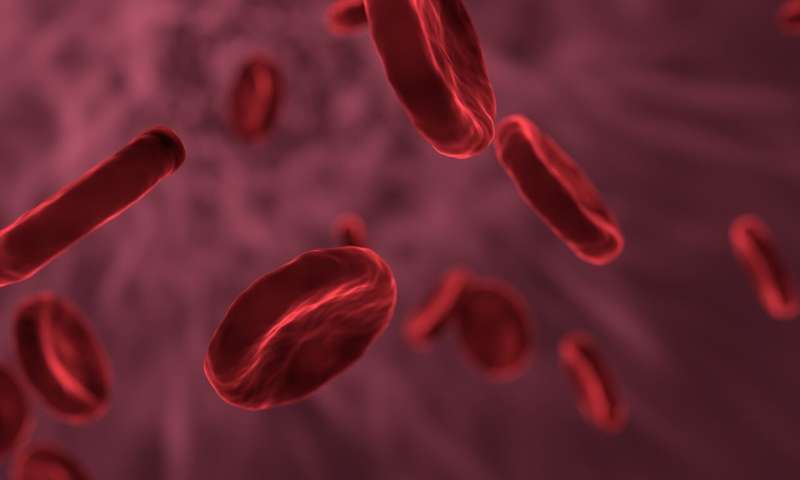This article has been reviewed according to Science X's editorial process and policies. Editors have highlighted the following attributes while ensuring the content's credibility:
fact-checked
peer-reviewed publication
trusted source
proofread
Self-administered blood test shows promise for checking heart health

Researchers at Murdoch University's Australian National Phenome Center have delivered a self-administered blood test that could revolutionize the landscape of cardiovascular risk assessment.
Tests usually performed to detect heart disease and cardiovascular risk are complex and require venous blood sampling which is typically done by a doctor, nurse, or phlebotomist.
However, Dr. Nathan Lawler and Ph.D. candidate Jayden Roberts have perfected a method for measuring a large collection of lipoproteins in pin-prick blood samples that can be made without medical supervision and in remote sites.
Their paper "Rapid and Self-Administrable Capillary Blood Microsampling Demonstrates Statistical Equivalence with Standard Venous Collections in NMR-Based Lipoprotein Analysis" is published in the journal Analytical Chemistry.
Working with ANPC Director Professor Jeremy Nicholson, Dr. Lawler and Roberts' new test involves capillary microsampling and metabolic phenotyping using Nuclear Magnetic Resonance spectroscopy to accurately measure the 112 lipoproteins responsible for the cholesterol and lipid transport.
Metabolic phenotyping captures an integrated profile of an individual's biological status and reflects the interaction of genes and the environment, especially in response to external stressors.
With just a small, self-administered sample obtained from the fingertip, individuals can now access detailed insights into their cardiovascular health, including the established HDL-C, LDL-C, VLDL-C and triglycerides and extended parameters such as the Apo-Lipoprotein B100 / Apo-Lipoprotein A1 ratio (ABA1).
"This will revolutionize the landscape of cardiovascular risk assessment by enabling quick and non-invasive lipoprotein analysis," Dr. Lawler said. "This innovation has the potential to empower individuals to proactively monitor their health."
Roberts said that importantly, the test could be performed at a pharmacy or community health center, making an accurate and comprehensive cardiovascular health assessment easily accessible.
"The ANPC is planning to further simplify blood collection which will open the assay more broadly to remote and inaccessible populations," he said.
Professor Nicholson said the ability to easily monitor lipoprotein levels would mean people could take proactive steps to mitigate their cardiovascular risk factors by adopting a healthier lifestyle. "Thus leading to improved health outcomes and a reduced incidence of cardiovascular diseases," he said. "This is a very practical step forward based on top quality international science applied for clinical translation."
More information: Jayden Lee Roberts et al, Rapid and Self-Administrable Capillary Blood Microsampling Demonstrates Statistical Equivalence with Standard Venous Collections in NMR-Based Lipoprotein Analysis, Analytical Chemistry (2024). DOI: 10.1021/acs.analchem.3c05152


















